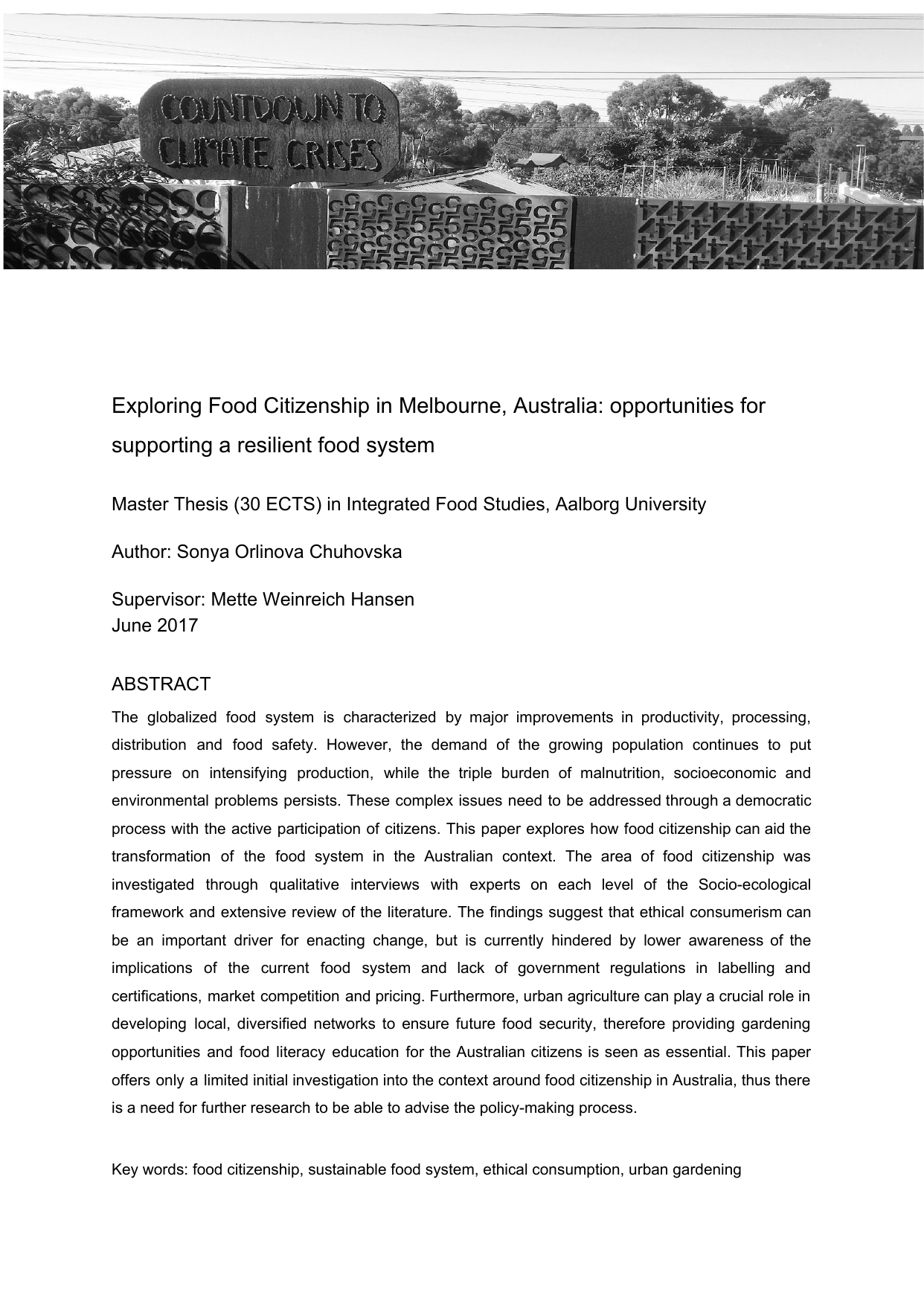
Exploring Food Citizenship in Melbourne, Australia: opportunities for supporting a resilient food system
Author
Term
4. term
Publication year
2017
Submitted on
2017-06-09
Pages
69
Abstract
The globalized food system is characterized by major improvements in productivity, processing, distribution and food safety. However, the demand of the growing population continues to put pressure on intensifying production, while the triple burden of malnutrition, socioeconomic and environmental problems persists. These complex issues need to be addressed through a democratic process with the active participation of citizens. This paper explores how food citizenship can aid the transformation of the food system in the Australian context. The area of food citizenship was investigated through qualitative interviews with experts on each level of the Socio-ecological framework and extensive review of the literature. The findings suggest that ethical consumerism can be an important driver for enacting change, but is currently hindered by lower awareness of the implications of the current food system and lack of government regulations in labelling and certifications, market competition and pricing. Furthermore, urban agriculture can play a crucial role in developing local, diversified networks to ensure future food security, therefore providing gardening opportunities and food literacy education for the Australian citizens is seen as essential. This paper offers only a limited initial investigation into the context around food citizenship in Australia, thus there is a need for further research to be able to advise the policy-making process.
Documents
